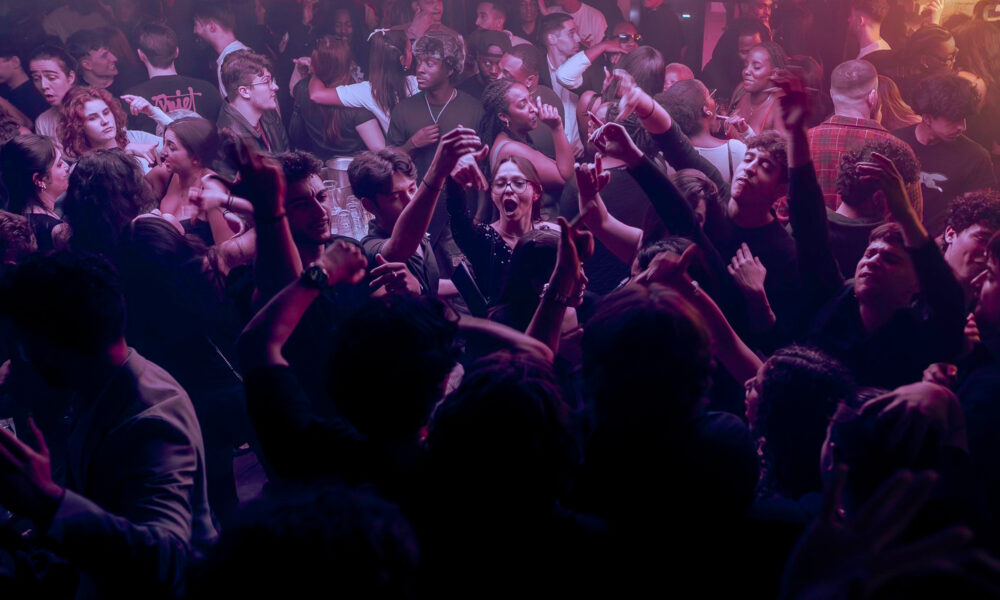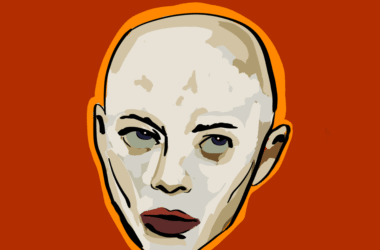Montreal’s cultural fabric is shaped by its artists. From writers and sculptors to fashion designers and chefs, there is a scene for everyone. When it comes to musical history, the city’s Black communities hold great significance. The music scene extends to DJing, with events like Igloofest and Aire Commune, along with collectives like Boiler Room, showcasing its vibrancy and diversity. Given this cultural backdrop, I sought to explore the experiences of Black women DJs whose perspectives are underrepresented despite their significant contributions. I interviewed three Black women DJs to understand what the art means to them—and how their identities influence their artistry.
Drawing on her Cameroonian heritage and upbringing in France, Inès, who performs under the name Ms Baby, skillfully blends traditional and contemporary African and European electronic influences with the richness of popular African American music. The result is a sound that resonates beautifully within Montreal’s diverse landscape. Playing African music, especially traditional tunes, holds immense significance, as countless African artists have shaped music globally while going unrecognized for it. For Inès, it’s not just about playing songs; it’s her mission to give those artists their flowers, honouring and celebrating their contributions to the music world.
Another voice in the scene is Asha, a Toronto-born DJ with Guyanese parents who entered the electronic music scene after living in Berlin. Like Inès, she noted that many DJs draw from diverse global influences, but the creators behind the sounds are often overlooked. She emphasized that DJing involves much more than playing music; it requires research and proper crediting of the artists.
“If there’s one thing I wish people understood better, it’s how much weight the music you play carries,” Asha explained. “When you take on the role of a DJ, you’re not just spinning tracks; you’re also a curator of culture and history.”
Asha noted that this awareness is not only about respecting artistry but also about recognizing the political implications of music selection. “In my opinion, DJing is political,” she asserted. “It’s about acknowledging the producers you support and the cultural energies you’re promoting.”
For Janelle (IAMNOTMYHISTORY), the music she chooses to play is largely influenced by her Trinidadian background. When asked about her DJ name, Janelle shared that it reflects her awareness of how Black history is often simplified or distorted in educational contexts. She pointed to the importance of recognizing the depth and complexity of her heritage beyond a single narrative.
Janelle emphasized that her name is also a personal declaration. “I don’t want to be defined by my past,” she explained. “I am not just my history; I am so much more.” Her perspective embodies her desire to remain present and open to growth, allowing her to evolve as an artist and an individual. “While my background informs my music, I want to continue creating and exploring new avenues without being confined by what I’ve already accomplished,” she said.
All three women highlighted the unique challenges of being Black women DJs in a male-dominated industry. Inès emphasized the importance of representation, noting that seeing other Black women DJing fostered a sense of belonging. She described the frustrating expectation for Black women DJs to simply be grateful to be given opportunities, which often results in low performance expectations and relegation to less prestigious slots. Despite these obstacles, the three women expressed empowerment in their journeys, citing the joy of sharing music in the city as a key source of their success.
As Black women artists like Inès, Asha, and Janelle navigate the complexities of being minorities in the DJ scene, they are carving out spaces that honour their heritage while also embracing their multifaceted identities. In a city where a shared love of music fosters creativity and collaboration, these DJs remind us that the past does not define one’s future; instead, it serves as a foundation to build limitless possibilities. As they continue to break barriers and inspire the next generation, the unique contributions of Black women DJs enrich Montreal’s artistic landscape, ensuring that their voices are heard in the sound of the city.







